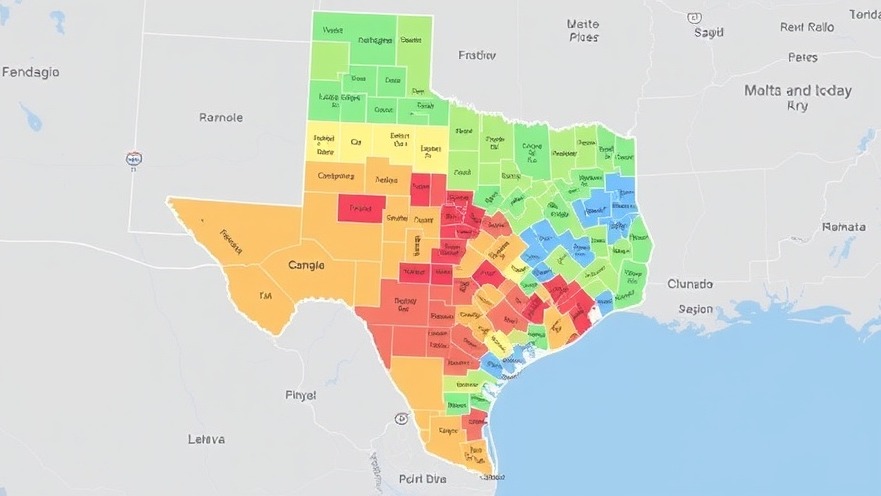
Absence of Maps Sparks Controversy in Texas Redistricting Process
On July 26, 2025, the Texas House redistricting committee convened a hearing at the University of Houston, drawing significant criticism due to the absence of redistricting maps. As the chair of the committee, Cody Vasut, welcomed a standing-room-only crowd filled with concerned residents, skepticism filled the air. Lawmakers and citizens alike were eager to discuss the redrawing of congressional districts in Texas, where three districts are pivotal, held by Black or Latino Democrats in the Houston area.
Democratic Lawmakers Voiced Valid Concerns
As the hearing kicked off, Democratic members like state Rep. Senfronia Thompson and state Rep. Jolanda Jones pointedly questioned Vasut about the rationale of holding hearings without tangible maps for the public to review. "You cannot let the public testify about maps that they’ve never seen," Jones said, emphasizing the disconnect between the committee's proceedings and the public’s right to engage meaningfully in the process.
Public Outcry Against Gerrymandering
Attendees voiced that a fundamental principle of democracy is transparency, especially in processes that could potentially affect representation. One Houston resident, Jerome Wald, passionately argued against perceived gerrymandering, stating, "I wish that this Legislature were working on redistricting fairness rather than gerrymandering." His appeal for at least a five-day review period once maps become public was echoed by others who wanted to ensure that their voices were heard.
Political Implications of Mid-Decade Redistricting
The timing and logic behind redistricting efforts during a special legislative session led by Governor Greg Abbott raised eyebrows. Among the 30 items on Abbott’s agenda, the redrawing of congressional maps has evoked criticism not only from Democrats but also from civic leaders concerned about its broader implications on Texas politics for the upcoming 2026 elections. Critics argue this constitutional maneuvering could disenfranchise voters.
Future Implications for Texas Elections
As political landscapes shift and redefine based on redistricting, the conversations around it are more crucial than ever. Texas has undergone significant demographic changes since the last census, with population increases among communities of color. Lawmakers, advocates, and the electorate must remain vigilant to ensure new maps reflect these evolving dynamics and protect the interests of underrepresented groups, ensuring districts are fairly drawn.
The Call for Transparency and Fair Representation
The insistence on ethical practices in redistricting resonates deeply with voters who advocate for governmental accountability. The community's pushback adds a layer of complexity to the process, making it imperative that Texas legislators commit to ensuring constituents have adequate opportunities to digest and respond to proposed changes. The demand for at least five days to review any proposed maps before hearings—as advocated by community members—is essential for fostering a dialogue centered around transparency and fair representation.
Conclusion: Engaging in the Redistricting Process
The ongoing discussions surrounding redistricting in Texas serve as a reminder of the profound impact Congressional maps can have on local communities. As we approach the 2026 elections, it becomes imperative that constituents remain engaged in the process and demand clarity from their elected officials. Activating community forums and advocating for public discussions can enhance awareness and prioritization of fair representation. Engage locally, stay informed, and make your voice heard as Texas navigates this critical period in its democratic process.
 Add Element
Add Element  Add Row
Add Row 



Write A Comment